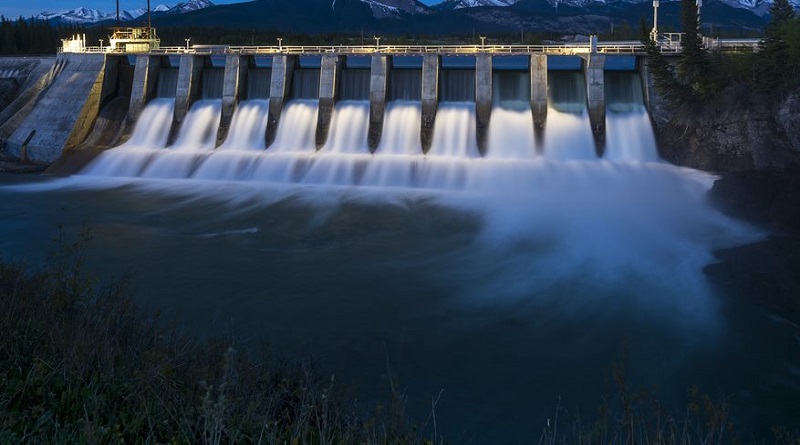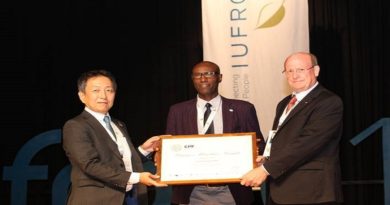Firm to showcase how hydropower can help climate action
The rapid and responsible deployment of clean, renewable energy is crucial to meet the goals of the Paris Climate Change Agreement, which is to limit the global average temperature so that the worst impact of climate change can be avoided, including ever more severe storms and droughts.
The evolution of solar and wind energy has been the driving force of the transition to a low-carbon world in the past years, but despite the rise of new energy sources, one technology remains a cornerstone of the renewable energy mix in some regions of the Earth: hydropower.
Hydropower still accounts for 70% of the world’s renewable generation capacity, a proportion that rises to more than 80% in Latin America, according to the International Renewable Energy Agency (IRENA). So the sector has a key role to play in the implementation of the Paris Agreement.
Hydropower holds a double relationship with climate change. On the one hand, it contributes to the avoidance of greenhouse gas emissions from the burning of fossil fuels. On the other, water availability and hydropower generation are likely to be affected by changing rainfall patterns, which can reduce the flow of rivers.
At the UN Climate Change Conference in Katowice, Poland (COP24) in December 2018, the hydroelectric power company Itaipu Binacional will showcase best practices in the sector to illustrate the potential of hydropower to avoid greenhouse gases emissions.
Located on the border of Brazil and Paraguay, the plant is owned by the two governments and provides around 15% of the energy consumed in Brazil and 86% of the energy consumed in Paraguay. It also holds the world record of annual energy production for a hydroelectric plant, with 103.1 million MWh generated in 2016. Around 500 thousand barrels of oil per day, about a fifth of the Brazilian production, would be required to produce the same amount of energy.
Mitigating the Environmental and Social Cost of Hydropower
The development of hydropower, however, does not come without environmental and social costs. Deforestation, marine life impacts and the displacement of ethnic groups can be among its negative consequences, brought about especially by large-scale projects. An additional issue confronting the sector are the threats to its generation potential presented by climate change, which triggers an increased occurrence of extreme weather events. Between 2014 and 2017, an unprecedented drought reduced water pressure in hydroelectric plants in Brazil, resulting in higher water consumption tariffs.
The contribution of the hydropower sector to the goals of the Paris Agreement, therefore, needs to be considered not only in terms of avoiding greenhouse gas emissions, but also in promoting projects that ensure that the impacts of large projects are minimized and sufficiently compensated.
Itaipu implements projects in the areas of conservation of biodiversity and maintenance of ecosystem services and local cultures, providing a strong example of joint efforts between two countries working together to achieve sustainable development and leadership on climate action.
The company established the “Sustainable Water and Energy Solutions” in partnership with the United Nations Department of Economic and Social Affairs (UN DESA) in March 2018 and will launch a platform for the initiative at COP24.
The objective is to build a global multi-stakeholder network that can enhance capacities, dialogues and cooperation at all levels to facilitate national implementation of the 2030 Agenda, particularly of the Sustainable Development Goals #6 “Clean Water and Sanitation” and #7 “Affordable and Clean Energy”, which are closely interlinked with SDG #13, “Climate Action”.
“Climate change challenges governments, companies and other organizations to work together in order to build a sustainable future for all. Itaipu understands it has, not only to generate clean and renewable energy, but also to promote water security, biodiversity conservation, and social development in Brazil and Paraguay”, says Brazilian General Director of Itaipu, Marcos Stamm.
“Itaipu is a binational partnership which demonstrates that the common understanding among nations is a key factor in order to pave the way for sustainability and to reduce the impacts of climate change”, says Paraguayan General Director of Itaipu, José Alberto Alderete Rodríguez.
Some of the initiatives undertaken by the company to combat climate change, ensure water security and minimize social impact in Brazil and Paraguay are: The preservation of 104 thousand hectares of the Atlantic Forest in Brazil and Paraguay; the recovery of watersheds around the reservoir by protecting springs and riparian forests, employing soil conservation techniques and fostering sustainable agriculture and the payment of US$11 billion in royalties to federal governments, states and municipalities in Brazil and Paraguay since the beginning of its operation;
Others are the company also compensated landowners for the flooding due to the formation of the reservoir and currently supports three indigenous communities with around 300 families; in Paraguay, Itaipu coordinates the Paraguay Biodiversity program, which aims to preserve biological diversity by linking forest fragments and promoting sustainable land use; and Itaipu’s fleet runs almost exclusively on electricity and biofuels. This avoids the emission of around 900 tons of CO2 equivalent by year.




